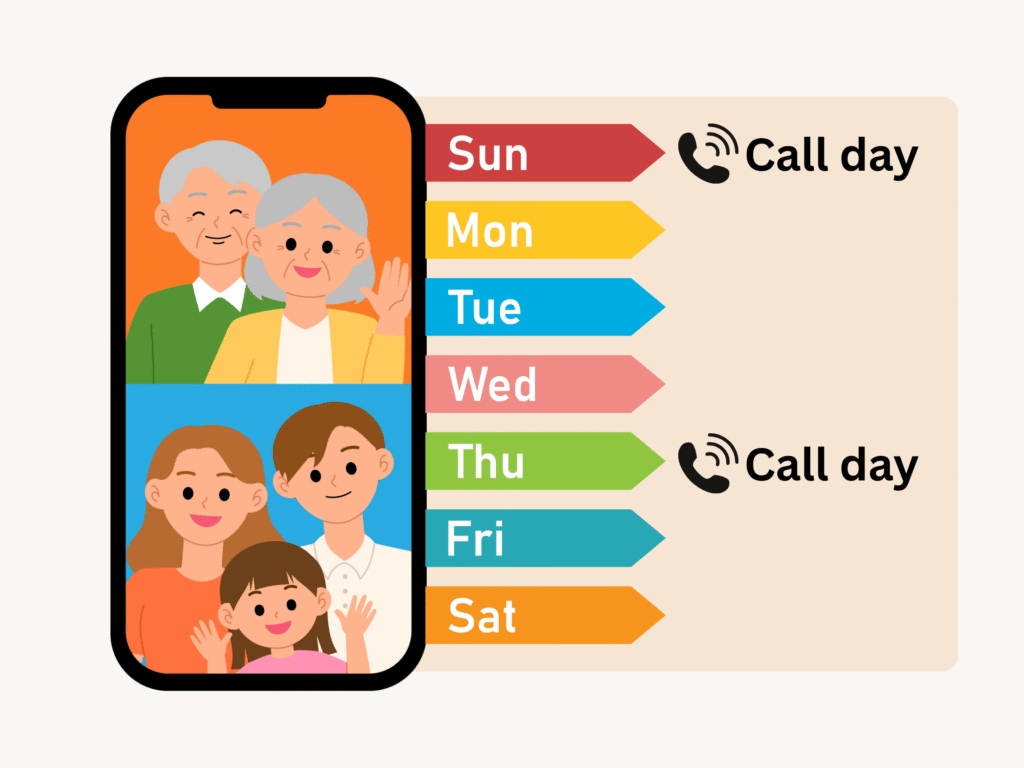
Understanding the Tension Between Immigrant Parents and Their Adult Children
Expected read time: 5 minutes
Written by: Alishba Mahmood, Specialist in Mental Health Studies (HBSc), University of Toronto
Are you part of an immigrant family facing the challenge of balancing traditional values with Western perspectives for the first time? Have these differences been straining your family relationships, or have you been feeling unsettled by the shift in dynamics? It’s not just about curfews, career choices, or who does the dishes.
At the heart of this struggle are two different worlds… first-generation immigrant parents coming from a collectivist culture are usually rooted in tradition, survival, and sacrifice, while their children are introduced to new Western beliefs like individual freedom, emotional openness, and cultural integration.
This shift in values, expectations, and communication styles can often lead to misunderstandings, guilt, or distance, especially when love is expressed differently across generations. These aren’t just personal issues, but rather symptoms of intergenerational trauma.
Part of this challenge for an immigrant household is:
- Struggling to stay true to your own values despite outside pressures
- Accepting and supporting the idea that different values can exist together
Although it’s natural for parent-child relationships to evolve, especially in immigrant households, it doesn’t have to mean distance or conflict.
So how can we foster a healthy, compassionate connection between parents and adult children, while having competing differences in values and lifestyles?
1. Set Boundaries
Setting boundaries within families can feel uncomfortable, especially when we’ve been taught that saying “no” or needing space means being disrespectful or emotionally distant. There is a common misconception that boundaries create division or signal a lack of care. In reality, the opposite is true.
Whether you’re a parent or an adult child, establishing healthy boundaries is not about shutting each other out. It’s about fostering mutual respect and recognizing each person’s needs. It might feel unfamiliar or even trigger guilt at first, but boundaries can be a powerful tool for strengthening relationships, not weakening them. It may look like…
Finances

Set limits on the financial support you’re able to provide.
“I’m not in a position to lend or give money right now, but I can help in other ways.”
Availability

Manage expectations around how often you see or call each other.
“Although I can’t make it every weekend, let’s plan for a visit once a month that we can both look forward to.”
Privacy

Protect your emotional space by choosing what personal topics to discuss, like relationships, career, life decisions, etc.
“I appreciate your concern, but I’m not ready to talk about that part of my life yet.”
Wellbeing

Know when to step away when your emotional boundaries are being crossed and you’re feeling invalidated.
“That comment hurt me. I need time to cool off, and we can talk about it later when I feel ready.”
2. Find a Common Ground
Whether you are a parent or an adult-child, it’s important to approach any conversation from a place of respect, despite having different opinions. This means acknowledging generational differences and understanding that you may not always see eye to eye.
Instead of trying to change or avoid these differences, try focusing on your shared values and experiences. You may not agree on everything, but you likely both share common ground in your love for family, the desire for open communication, or wanting what’s best for each other.
To express this openly, try using the following statements:
- “Even though we don’t always agree, I know we both care deeply about this family.”
- “I may not fully understand your perspective, but I want to hear you out because I care about what matters to you.”
- “We’re both doing our best in the way we know how, so let’s work through this together and find a way to make sure we’re both content.”
3. Practice Non-judgemental, Open Communication
You don’t have to agree with your parents or child, but understanding where they’re coming from can make a big difference.
Here are some simple ways to keep communication open and respectful, even when you might disagree:
- Have an open mind by trying to imagine how things look from their point of view.
- Ask follow-up questions to try to understand their perspectives better
- Don’t engage in conversations with the mentality of wanting to “win.” Focus on connection, not proving a point.
- Be honest about your own feelings and experiences
- Avoid harmful conversation tactics such as yelling, blaming or ignoring others, as it can often leave both sides feeling hurt.
It’s not always easy, especially when emotions run high. But choosing to communicate with maturity and empathy can help prevent arguments from escalating. You have your own experiences and way of seeing the world, and so do they. Trying to understand why someone acts or thinks the way they do can be an eye-opener as well.
Takeaway
No matter how different your paths may be, mutual appreciation is the heart of parent–adult child relationships. The goal isn’t to eliminate conflict entirely, but to foster understanding for each other through boundary setting, finding a common ground, and fostering honest and open communication.
If you are finding it difficult to find a healthy balance between your relationships and personal values, it can be helpful to talk to someone about it.
At the Grace Health Centre, our team of culturally-informed therapists are here to support you in repairing your relationships and work toward healing and connection. Book your 15-minute free consultation today.
*Disclaimer: The information in this blog post is for educational and informational purposes only and is not intended as medical advice. Should you have been struggling any emotional or mental health challenges and would like to seek professional helps, please talk to your family physician, or professionals like Registered Social Worker or Registered Psychotherapists.
References:
5 Ways to Improve Relationships with Adult Children. (2024). Orange County Health Psychologists. https://www.ochealthpsych.com/5-ways-to-improve-relation
ships-with-adult-children/
Glik, R. (2022). The Parent-Adult Child Dynamic: Sources of Tension and Healing in The Distance. Dr. Rachel Glik. https://www.drrachelglik.com/blog-posts/2022/10/30/the-parent-adult-child-dynamic-sources-of-tension-and-healing-the-distance
Gupta, S. (2024). How to Set Boundaries With Your Adult Children. VeryWell Mind. https://www.verywellmind.com/setting-boundaries-with-adult-children-8686106
Parenting and Boundary Setting: Pediatric Mental Health Minute Series. (2025). American Academy of Pediatrics. https://www.aap.org/en/patient-care/mental-health-minute/parenting-and-boundary-setting/








